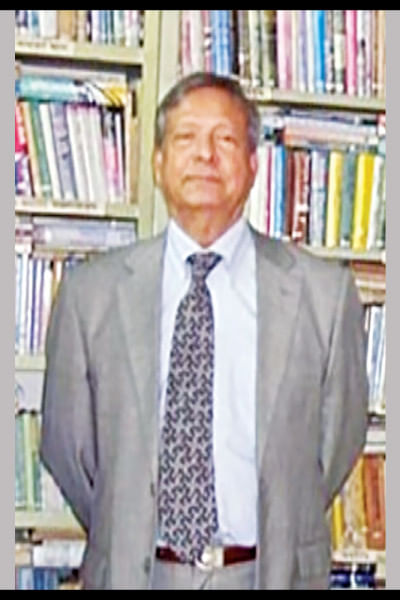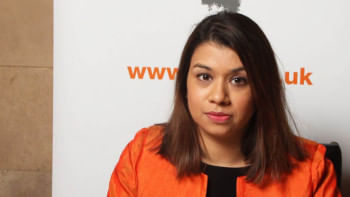Remembering Dr Wahidul Huq -- an untold story

When I was a student and a lecturer at Dhaka University in the 1970s, we used to talk a lot about Dr Wahidul Huq.
He was one of the brightest products of Dhaka University who obtained his PhD from Stanford University, one of the best in the world, and taught as a professor at the University of Toronto, Canada.
I did not have the opportunity to meet him even though I completed my graduation from the University of Western Ontario, Canada, which is only a two-hour drive from Toronto.
I only knew him through his works in the field of highly abstract mathematics and application of the general equilibrium theory in explaining the real-world economic issues.
While I was at the International Monetary Fund, I learned from media reports that Prof Huq was appointed as the finance minister of Bangladesh.
I was always intrigued by how an academician pursuing abstract economic theories would be dealing with the real-life job of managing a country's overall finance and the issue of complex political economy that comes with the job.
It did not take me long to get to work with him closely and experience the academician's handling of the real-life political economy.
I went on an IMF mission to Nigeria, and upon my return to my office in Washington DC, my administrative assistant told me that I would be going to Bangladesh and Dr Vito Tanzi, director of the fiscal affairs department at the IMF, wanted to talk with me on that issue.
I came to know from Dr Tanzi that when IMF managing director Michel Camdessus was visiting Bangladesh (after the floods of 1998), Dr Huq requested him to help the government by sending me to Bangladesh as the adviser to the finance minister. And Camdessus wished to entertain his request.
Dr Tanzi could not accept my statement that I had nothing to do with this request, but mentioned that although the IMF had never allowed its staff to be placed in their home countries, he would, albeit reluctantly, make an exception by allowing me to be placed as an IMF expert working with the government.
After coming to Dhaka, in my first meeting with him at the finance minister's office I asked him why he thought of me even though we never knew each other personally.
He told me that since I had worked on computable general equilibrium (CGE) theory, he would like me to work with him in preparing a CGE model for Bangladesh.
I recalled the observation of Prabhakar R Narvekar, director of the Asian department of the IMF, that the new finance minister was an excellent academician and thus would be open to undertaking reforms but would need help in the day-to-day operations of the finance ministry.
We agreed also to invite Dr Golam Quibria -- a Princeton University PhD -- at that time working in the ADB to help us put together the infrastructure.
Dr Quibria and I worked on putting together the terms of reference for a project at the finance ministry to initiate policy analysis and model building.
This policy cell at the finance division was the beginning of several major public financial management (PFM) projects since the mid-1990s until now, the seed for which was sown by Dr Huq during his short stint as the finance minister.
Dr Huq and I also discussed the possibility of introducing VAT in Bangladesh, for which he got the support from former president HM Ershad.
His support for the initiative was the key to my getting involved with the VAT introduction-related work with the National Board of Revenue and an exploratory visit by a Bangladesh delegation -- comprising the NBR and private sector representatives -- to a number of Asian countries to learn from their experience.
Dr Huq was instrumental in getting the president's approval for going ahead with the implementation of VAT in Bangladesh based on the report submitted after the completion of the visit.
Enthusiastic support of NBR senior staff including Dr Ekram Hossain (chairman), Shah Abdul Hannan (member), and Dr Zahid Hossain (then first secretary) deserves a special mention in this regard.
Dr Huq had a very simple and transparent mind and was always very uncomfortable with many things happening all around him.
On many issues, as he shared with me on different occasions, he was making bold dissenting views during the cabinet meetings -- almost like a lone voice without much effect.
He was getting frustrated in not being able to influence many of the decisions but continued to voice his reservations quite boldly within the cabinet.
On some occasions, I also tried to tone his dissenting voice suggesting that it might harm him in his current position. But I knew, while he listened to me, he could not compromise his principles.
One of his statements to the media was the final nail in the coffin. At that time, Bangladesh Bank's foreign exchange reserves were going down and Dr Huq requested me to do an analysis to identify the reasons behind the decline.
I worked with Bangladesh Bank's research department and concluded that all data were pointing to large amounts of money being siphoned off Bangladesh in suspicious ways.
There were huge gaps between export repatriation and also in import data. I submitted the report to Dr Huq for his own information, but as a sincere public servant, he went public alleging that massive amounts of capital flight were taking place and many powerful people were probably associated with it.
The next day, Dr Huq was relieved from his duties, in my view, for telling the truth to the public. He clearly showed that while he was a low key and not a dominating personality, he was uncompromising when it comes to the national interest.
Another sad truth that I came to realise was that when one falls from grace in Bangladesh, nobody stands by him.
Next morning, when I went to meet him at his Minto Road residence, there was nobody but me -- not even his private secretary to say goodbye.
Dr Huq had left Bangladesh with disappointment. He could not offer the country what he wanted to, probably because the country was not ready for a person like him.
I certainly missed him, but I was also happy that he went back to where he rightly belonged -- the academic world, which was more receptive to idealistic views and gave him the space to practise the teachings of Kenneth Arrow and Gerard Debreu, the icons of general equilibrium theory.
The writer is the executive director of the Policy Research Institute of Bangladesh

 For all latest news, follow The Daily Star's Google News channel.
For all latest news, follow The Daily Star's Google News channel. 



Comments